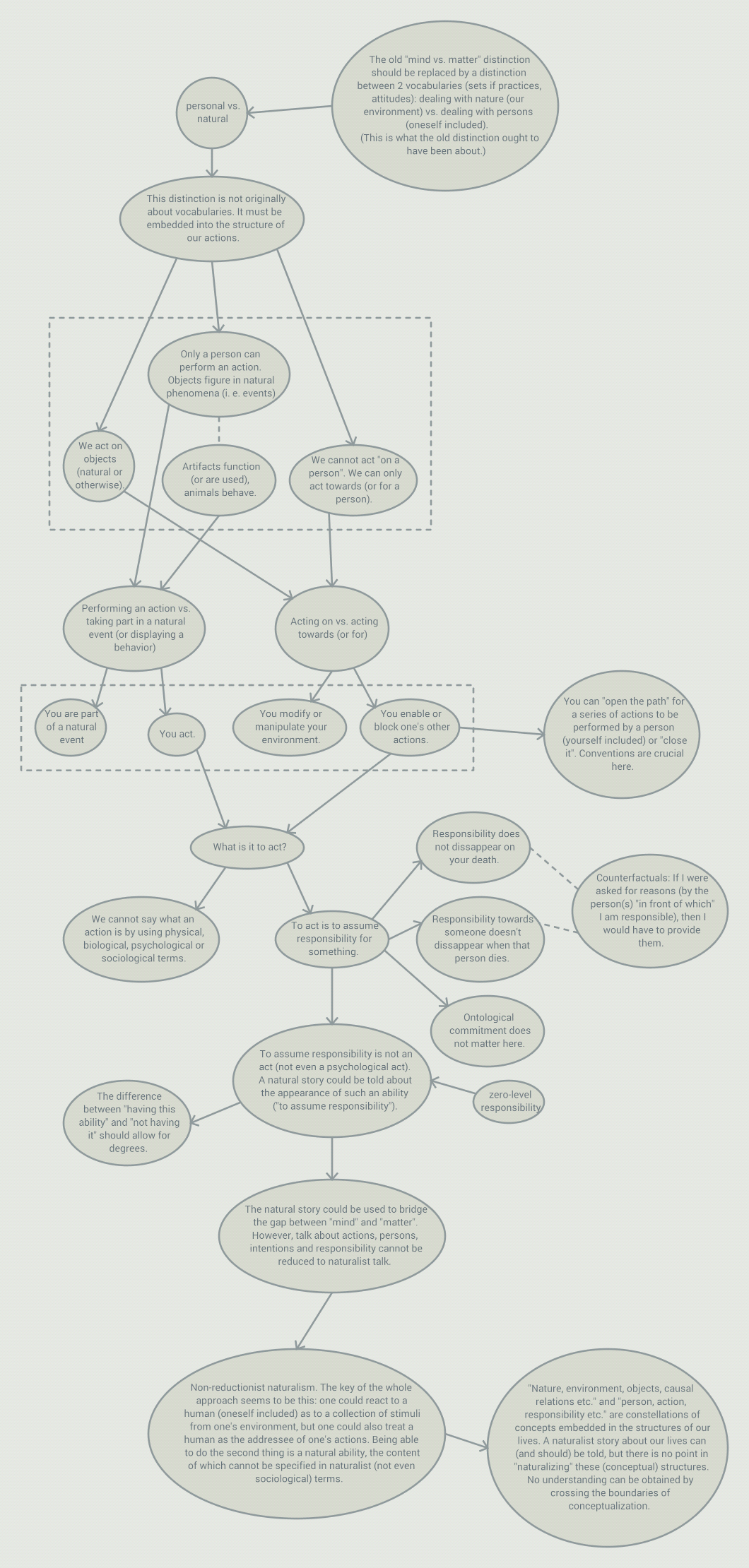Am scris o serie de însemnări, pornind de la întrebarea de mai sus, anul trecut. Le-am numit „improvizații filosofice”. Nu țin neapărat să spun că e vorba despre filosofie aici. Iar termenul „improvizații” îl folosesc cam în același sens în care se vorbește despre improvizații în muzică. Temele de gândire nu îmi aparțin. Nici mișcările de gândire pe care le fac nu sunt originale. Mi-a făcut plăcere să scriu și sper că există oameni cărora le-ar putea face plăcere să citească aceste rânduri. Asta e tot. Nu simt că aș mai putea continua această serie de însemnări. Nu fiindcă aș fi spus tot ce era de spus, ci fiindcă m-a părăsit inspirația, ca să zic așa.
Category Archives: opinii
Familia, parintii, copiii
Am lucrat anul trecut la o carte de filosofie pentru copii. Cartea cuprinde o serie de dialoguri imaginare cu o cititoare sau un cititor de 10-12 ani. Aici se gasesc doua discutii – una despre familie, alta despre obligatiile copiilor fata de parinti. Ele vin in continuarea unor reflectii din 2013, pe care le-am postat aici.
Other notes on actions, knowledge and language
Also from last year (see previous post).
Continue reading Other notes on actions, knowledge and language
Psychology and responsibility
Some notes written about one year ago. I did revise them, but nothing is publishable.
Empirical actions (and some other things)
This is mainly an (yet unsuccessful) attempt to develop what I understood as a Wittgensteinean suggestion here for how we could justify claims of the form ‘I know that p’, where p describes what is happening in the speaker’s environment, by performing certain empirical actions. Since these are my personal notes, some other thoughts are intermixed. If you have any feedback, please leave a comment bellow.
Reason, Actions, Nature
These are some notes which I wrote down in the last few months. I was thinking of writing a book, so I wrote in order to make the topic of my book a bit more clear. This is the only use of this text – to make it clear for myself what I am supposed to write about in my book. The only result of writing everything found here, which I would acknowledge, is that the title of my book should be ‘Reason, Language and Actions’. Nothing else should be taken seriously, nothing is worth mentioning etc. I did not proofread the text for grammar mistakes. If you want to take a look at it, you’re on your own.
Scribble (1)
A passing remark about belief attribution
Let us start with the following simple scheme of belief attribution:
Agent G does action A.
Belief B is a reason for doing A.
—-
Therefore, A believes B.
To take an example, suppose George eats a sandwich. A reason for doing so would be provided by the belief that sandwiches are nutritious, so we could attribute that belief to George.
Despre pacat si educatia morala
Sunt păcate şi păcate. Creştinii catolici disting între păcatele obişnuite şi păcatele capitale sau “de moarte”, cum ar fi, printre altele, violul. Cel care comite un păcat capital poate fi, totuşi, iertat, dacă se pocăieşte în timpul vieţii pentru fapta comisă. Ortodocşii nu adoptă distincţia, considerând, între altele, că aceasta le poate dăuna credincioşilor care, văzând că păcatul lor nu se află pe lista păcatelor capitale, l-ar putea trece mai uşor cu vederea.
Totuşi, atât ortodocşii, cât şi catolicii recunosc existenţa unui păcat de neiertat sau “etern”. Noi îi spunem “a lua în deşert numele Duhului Sfânt”. O blasfemie care vizează Duhul Sfânt nu mai poate fi iertată niciodată. Persoana care dă glas blasfemiei (înţelegând, desigur, ce spune) ratează definitiv mântuirea.
Crestinism si discriminare
Sa ne inchipuim ca anumiti oameni nu ar putea sa isi lase averea familiei. Dupa moartea lor, toate bunurile pe care le detineau trec in proprietatea statului. Familia nu ramane cu nimic.
Sa ne inchipuim, in plus, ca lucrurile ar sta asa doar in cazul crestinilor. Oamenii care ar declara ca nu sunt crestini nu ar avea astfel de probleme. Intr-o astfel de situatie, ar fi limpede ca crestinii sunt discriminati.
